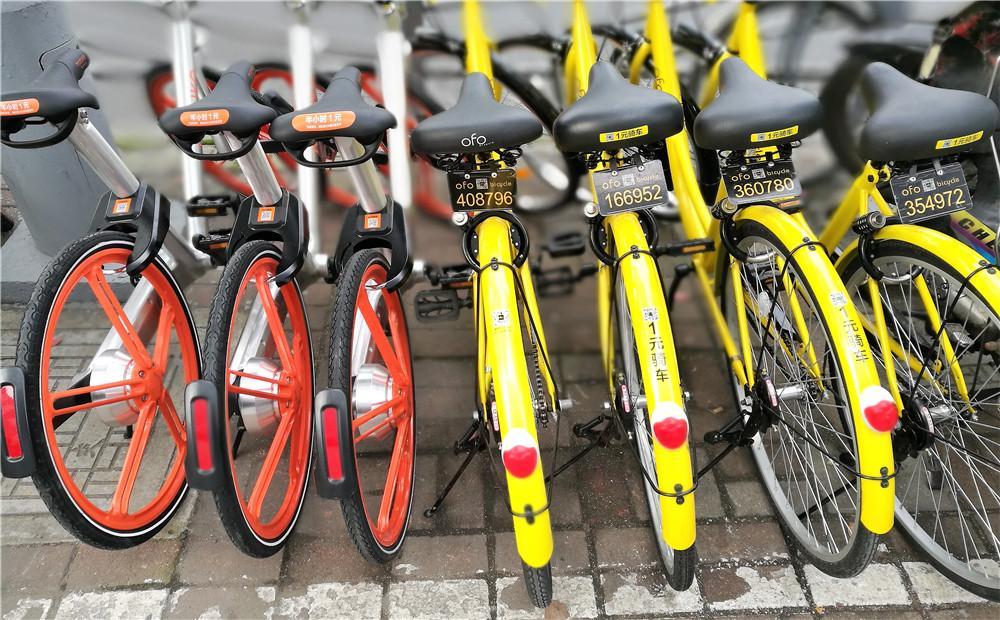By Kody Acevedo
If you’ve spotted an unattended yellow bike parked in arbitrary spots around town, don’t fret—they do indeed serve a purpose.
The dockless two-wheelers are part of a new variety of bike-share programs that debuted this past December.
Dockless bikes lock themselves and do not require a rack or station. Users, though, are encouraged to avoid blocking public rights of way or parking bicycles on residential properties, at bus stops or in alleyways.
Tempe’s official bike share vendor is GRID, operated by CycleHop.
Launched last May, this docked system provides another alternative to residents and visitors for getting around the city with ease.
Since the project’s startup, users have taken over 20,000 rides on the 300 bicycles located in Tempe.
In December, dockless bikes began operating in Tempe without any formal agreement with the city.
Ofo, the yellow bike provider, is a station-free bike sharing company that began operating in Tempe about three weeks ago.
“The…innovation and the nice effect of this bike, aside from being a good bike, is it can kind of be everywhere,” said Paul Vidal, general manager of Ofo in Phoenix. “You’re never that far from one, and you don’t have to go a mile or two out of your way to look for a dock.”
Ofo works similar to Uber or Lyft. A smart phone app is required to unlock and pay for the bike.
Ofo bikes cost $1 per hour to ride.
“Tempe is a community that really makes sense for the bikes,” Vidal said. “The weather makes sense, the user profile makes sense.”
But with a couple thousand Ofo riders a day in Tempe, Vidal said there will always be a handful of complaints.
Because the bikes are dockless, in order to secure the bike properly, the back tire automatically locks in place.
“A lot of users…they take liberties with the bikes and put them in places they shouldn’t be,” Vidal said. “That’s the nature of a lot of the complaints we see.”
Vidal insists that these occurrences are rare.
“But that doesn’t excuse them at all,” Vidal said.
In Tempe and Scottsdale, Vidal said he has a combined staff of 20 whose full-time job is to
“rebalance” the bikes. Each bike is GPS-tracked and monitored based on how often someone rides it.
“What that means is finding where the bad bikes are, or shouldn’t be, via the GPS network we use with these bikes, collecting them and putting them in places that can serve people,” Vidal said.
The city is currently looking into the legalities of the bike rental companies’ use of public rights of way as well as city property, said TaiAnna Yee, a public information officer for the city of Tempe.
“Moving forward, Tempe is working with other cities (Phoenix, Mesa and Scottsdale) to create a regional solution to address dockless bikes,” Yee said. “The city is doing its best to create regulations for these companies to follow. We are in the process of re-examining our city ordinances so that we may recommend modifications to our City Council to allow for a more orderly system.”
Vidal said if there is a bike that needs to be moved promptly, the best way to contact Ofo is via e-mail at support@ofobike.com. Bikes will be moved within 24-hours.
“We’re excited and committed to working with the city,” Vidal said. “We’re not good stewards of our community if we don’t take care of business that doesn’t work.”
For questions or feedback regarding dockless bikes, contact the companies directly. Spin: (orange bikes) 888-262-5189; LimeBike: (green with yellow) 888-546-3345; Ofo: (yellow bikes) 844-289-9747.
